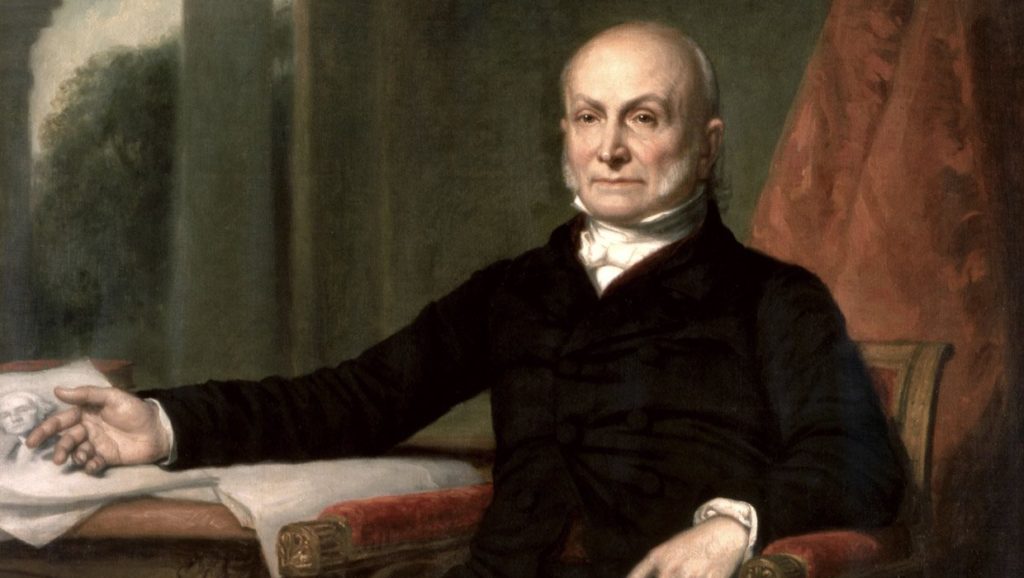
In 1779, at 12 years old, John Quincy Adams began a daily journal. His father John also kept a diary, while his mother Abigail corresponded in over 1,000 letters during their marriage. Abigail always knew her son loved writing. At one of their last meetings, she regretted that she had discouraged him from a career of crafting poetry and prose.
Throughout his life as a prominent public servant, JQA continued his daily writing for over 68 years. At his death, he left behind 51 volumes with over 15,000 pages of entries. They detail his early diplomatic work, his presidency, his eight terms in Congress. Just as importantly, they chronicle his social life, his private life, and his struggles as a husband and father.
JQA’s journals appear twice in this play, first in 1809, when he decides to leave his two oldest sons behind with relatives, in becoming ambassador to Russia. When Louisa confronts him, he claims, “The normal rules do not apply to men like me.” He complains children “bore him to distraction” and raising them is Louisa’s “Sacred Work.” His journal here is a symbol of his calling to change the world. Yet great politicians can be capable of good parenting, in spite of JQA’s claim as a young father. Today’s parents can still hear ourselves in this disagreement over work-life balance and the emotional demands of child care.
The second time we see JQA’s journals on stage is the day he buries his second son John, twenty-five years later. In her grief, Louisa accuses him of being selfish in taking time to write for “future strangers,” asking: “How many hours of actual living do you suppose you’ve abandoned to that endless…to that maelstrom of posterity? How many hours that you might have spent with me? Or our children?”
Now, personal writing has often required moments stolen from paid work, away from responsibilities to family members and friends. By this age, though, JQA knows the deep, painful costs of putting career and country before family life. His journals take on new meaning here, as he apologizes to Louisa. While they are already emblematic of all the work he accomplished for the country and for himself, they become symbols of his apology to later generations for what he did not accomplish, for the work he left undone.
As he writes and reflects on each day, over many years, JQA learns that doing more may not lead a person to do better, or to do right. He may have kept his journal for self-improvement, but centuries later, we “future strangers” can still benefit from the lessons he learned.
By Heather Beasley, Dramaturg of “JQA”






